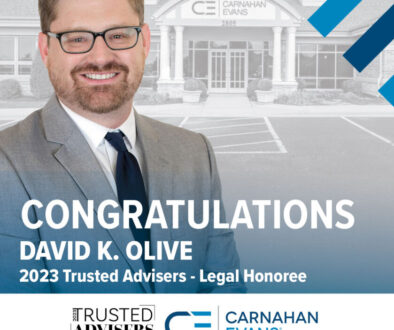For Cannabis Companies, Hits Just Keep on Coming
In a landmark decision, the Tax Court has ruled the nation’s largest dispensary will have to repay tax deductions taken between 2007 and 2012. In Patients Mutual Assistance Collective Corporation (d.b.a. Harborside Health Center), v. Commissioner, 151 T.C. No. 11, the Tax Court ruled, among other things, that a medical-marijuana dispensary that was also 1) selling non-marijuana products such as clothing, hemp bags, and books; and 2) providing free therapeutic services was prevented by the Internal Revenue Code from deducting any of its ordinary and necessary business expenses.
The Harborside ruling is the latest in a line of cases from the Tax Court that serves as a harsh reminder for entrepreneurs with aspirations to make a splash in this burgeoning industry: regardless of whether your state has legalized cannabis, “[t]o the Commissioner that just makes you a giant drug trafficker.”
I. Section 280E of the Internal Revenue Code
The law at issue is Section 280E of the Internal Revenue Code. Section 280E provides “[n]o deduction or credit shall be allowed for any amount paid or incurred during the tax year carrying on any trade or business if such trade or business (or the activities which comprise such trade or business) consists of trafficking in controlled substances.” In other words, this section disallows any business from taking any business deductions if their business “consists of” trafficking in a controlled substance, such as marijuana. Even if the deduction is related to expenses for non-trafficking activities, such as wages or utilities, it is disallowed under this provision.
The effect of this law is that cannabis companies, operating in states that have decided to legalize their operation, are paying taxes at rates as high as 80%. For many, this simply makes the barrier to entry into the market too high to bear.
As a threshold matter, Harborside initially tried to argue that Section 280E did not apply because the statute only applies to a business if their business “consists of” trafficking in a controlled substance, which should be interpreted to mean that the business must exclusively sell marijuana and other marijuana-containing products. By selling non-marijuana products and offering other services, Harborside argued that its business does not “consist of” trafficking a controlled substance, and it should be able to deduct expenses related to those non-trafficking activities. The Tax Court rejected this argument, holding that Section 280E will apply to dispensaries that offer non-trafficking activities, and that those businesses will be prevented from deducting expenses related to those activities.
II. The Scope of Section 280E
Harborside next argued that if Section 280E did apply, it should still be able to deduct expenses unrelated to the trafficking of marijuana because it carried on multiple trades or businesses. In making this argument, Harborside relied on the Tax Courts ruling in C.H.A.M.P. v. Commissioner, where the Tax Court used a fact-based analysis to determine a dispensary was actually engaged in more than one trade or business, and could make deductions for trades or businesses that were separate from trafficking marijuana. The Tax Court has considered this issue in other rulings, most notably in C.H.A.M.P., as well as Olive v. Commissioner.
The Court admitted that even if Section 280E does apply, it can still deduct its expenses so long as those expenses are for any separate, non-trafficking trade or business. In C.H.A.M.P., for example, the Court found that the dispensaries’ caregiving services were substantial enough to be considered an independent trade or business, and thus could take business deductions for expenses related to those services.
When determining whether a taxpayer operates multiple trades or businesses, the Court uses a fact-based analysis to determine the “degree of organizational and economic interrelationship of various undertakings, the business purpose which is (or might be) served by carrying on the various undertakings separately or together, and the similarity of the various undertakings.”
Besides selling marijuana and marijuana containing products, Harborside argued it conducted several other activities, each of which constituted a separate trade or business, including mainly sales of products with no marijuana and providing therapeutic services.
The court examined each activity separately and determined whether the activity was economically independent enough to constitute a separate trade or business, or was merely incidental to the sale of marijuana. Harborside failed to argue that any of its separate activities constituted a trade or business. In so doing however, the Tax Court has now released further guidance to cannabis companies hoping to minimize the bite of Section 280E.
Harborside first argued that its sale of products that do not contain marijuana constitutes a separate trade or business, and therefore the expenses for which should not be subject to Section 280E. Harborside sold branded clothing, hemp bags, books about marijuana, and marijuana paraphernalia such as rolling papers, pipes, and lighters. The court noted that these items generated only 0.5% of Harborside’s revenue, they were handled and sold by the same employees that handled and sold marijuana products, and that the non-marijuana products were sold in the same areas as the marijuana products in concluding that this failed to constitute a separate trade or business. Further, there was no separate entity, management books, or capital for nonmarijuana sales. The Court concluded “[t]his leads us to find that the sale of non-marijuana-containing products had a ‘close and inseparable organizational and economic relationship’ with, and was ‘incident to,’ Harborside’s primary business of selling marijuana.”
Harborside next tried to argue that a portion of each marijuana sale was actually a purchase of its free holistic services. In fact, this was also told to Harborside’s patrons – that part of the purchase price of the marijuana would be used to pay for patient services and community outreach. The services included one-on-one therapeutic sessions for reiki, hypnotherapy, naturopathy, acupuncture, and chiropractic consultations as well as group sessions for yoga, qigong, the Alexander technique, and tai chi. Harborside was essentially arguing it was similar to the taxpayer in C.H.A.M.P., which was found to have a separate trade or business when members paid a set fee for unlimited access to extensive services and also received a fixed amount of marijuana.
The Court distinguished Harborside’s structure from C.H.A.M.P. on the grounds that the patrons paid according to the amount and type of marijuana they wanted and in return gained access to the above services. Again, the Court noted the time and resources dedicated by Harborside and its staff to these services, and found that these services were once again incidental to the sale of marijuana. The Court compared Harborside to a bookstore that gives away coffee to its patrons. “A bookstore that pays for its coffee with book sales and does not charge separately for coffee is still only a bookstore.”
III. Cost of Goods Sold
After finding that Harborside operated only one trade or business, the Court next turned to determining the extent to which Harborside could deduct its costs of goods sold (COGS). All taxpayers – even those subject to 280E – pay tax only on gross income, which is gross receipts minus the costs of goods sold. In this portion of the opinion, the Court provided more guidance on distinguishing between a business-expense deduction and an adjustment for Cost of Goods Sold.
COGS can be defined as the “costs of acquiring inventory, through either purchase or production.” At issue in this opinion was which set of rules should be applied – the rules under Section 471 or Section 263A. As one can understand, Harborside attempted to persuade the Court that Section 263A applied, but this argument ultimately failed.
In Section 471, Congress deferred to the Treasury to promulgate regulations for determining COGS. The regulations provide different rulers for producers and retailers. Therefore, different rules could apply for cultivators and dispensaries. For dispensaries, COGS only include the price they pay for inventory plus any “transportation or other necessary charges incurred in acquiring possession of the goods.” Producers are allowed to include a wider scope of expenses, including cost of raw materials, expenditures for direct labor, and certain indirect production costs. Section 263A is much simpler and more favorable to taxpayers, simply instructing both producers and resellers to include “indirect” inventory costs. It also broadens the definition of indirect costs for both types of taxpayers.
In deciding that Section 263A did not apply, the Court pointed to Section 263A(a)(2), which says “any cost which (but for this subsection) could not be taken into account in computing taxable income for any taxable year shall not be treated as a cost described in this paragraph.” In other words, if something wasn’t deductible before Congress enacted Section 263A, taxpayers cannot use that section to capitalize it. Therefore, the Section 263A rules do not apply to cannabis companies.
IV. Looking to the Future
Although this decision seems to have given Section 280E more bite for cannabis companies, the opinion does offer more guidance for those looking to profit in this industry. By providing a thorough analysis of the scope of Section 280E, cannabis companies have more guidance with respect to formation, capital structuring, and management in order to limit the scope of Section 280E. Although more narrow than before, this decision highlights a path to profitability with the right planning and execution.


